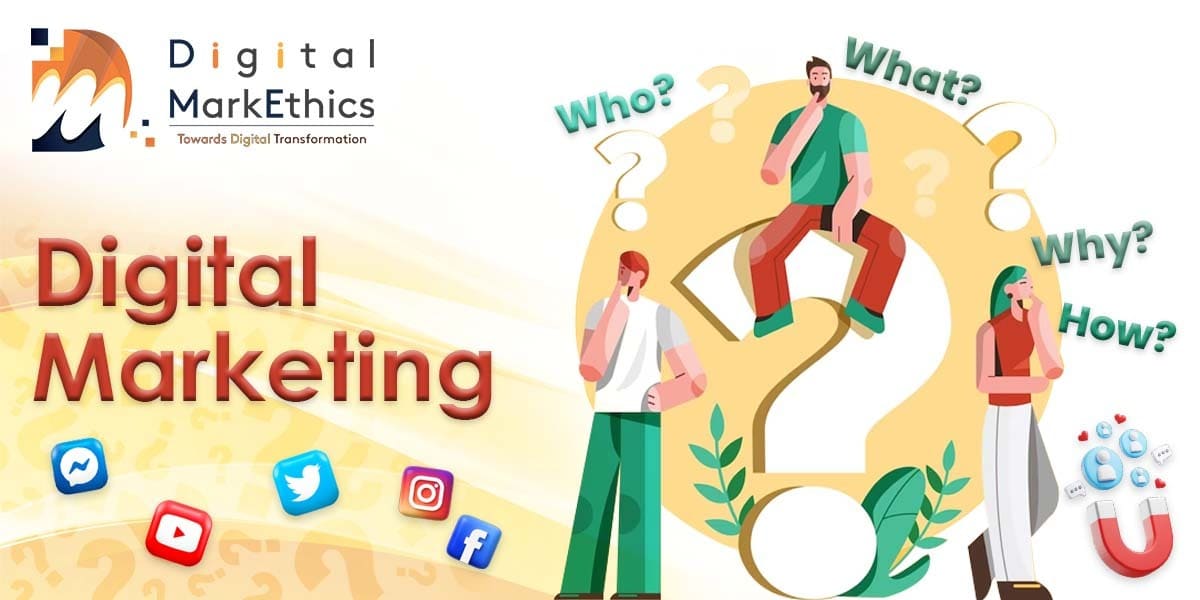Introduction
In today’s fast-paced digital world, traditional marketing methods are no longer sufficient to meet the evolving needs of businesses and consumers. As a result, digital marketing has emerged as a powerful tool to reach and engage audiences on various online platforms. This comprehensive guide aims to demystify digital marketing by exploring its key aspects, including who it benefits, what it entails, why it is crucial, and how it can be effectively implemented.
Who benefits from digital marketing?
Digital marketing benefits a wide range of individuals and businesses. Firstly, businesses of all sizes and industries can leverage digital marketing to their advantage. Small businesses can compete with larger enterprises by reaching a global audience and targeting specific demographics more effectively. Startups can establish their brand presence and create awareness without the need for large marketing budgets. Moreover, established companies can expand their reach and engage with customers on various digital platforms. Additionally, digital marketing benefits individuals pursuing careers in marketing or entrepreneurship. By acquiring digital marketing skills, they open doors to diverse job opportunities and gain the ability to market their own products or services effectively. Digital marketing provides immense opportunities for growth, visibility, and success in the modern digital landscape.
What is digital marketing?
Digital marketing encompasses a broad range of strategies and tactics aimed at promoting products, services, or brands through digital channels. It includes various components such as search engine optimization (SEO), content marketing, social media marketing, email marketing, pay-per-click (PPC) advertising, and more. The goal is to connect with target audiences, build brand awareness, drive website traffic, generate leads, and ultimately convert them into loyal customers.
Why is digital marketing crucial?
Digital marketing is crucial for several reasons:
- Wider Reach: In today’s digital age, a significant portion of the global population is online. Digital marketing allows businesses to tap into this vast online audience, breaking down geographical barriers and expanding their reach beyond traditional boundaries. It provides the opportunity to connect with potential customers on a global scale, increasing the potential for brand exposure and growth.
- Cost-Effectiveness: Digital marketing often offers a more cost-effective approach compared to traditional marketing methods. Advertising through digital channels, such as social media or search engine ads, can be more affordable than traditional print or TV advertising. This is particularly beneficial for small businesses or startups with limited budgets, allowing them to compete with larger competitors on a more level playing field.
- Targeted Advertising: One of the key advantages of digital marketing is the ability to precisely target specific audiences. Through data analytics and user insights, businesses can identify their target market’s demographics, interests, behaviours, and preferences. This enables them to create personalized and highly targeted marketing campaigns that resonate with their audience, leading to higher conversion rates and better return on investment (ROI).
- Measurable Results: Unlike traditional marketing, digital marketing provides the ability to track and measure the effectiveness of marketing campaigns accurately. Through various analytics tools, businesses can gather data on website traffic, engagement, conversions, and other key performance indicators. This data-driven approach allows for continuous optimization and improvement of marketing strategies, ensuring resources are allocated effectively for maximum impact.
- Enhanced Customer Engagement: Digital marketing provides numerous channels for businesses to engage and interact with their customers. Social media platforms, email marketing, and content creation allow for direct communication, feedback, and building relationships with customers. This fosters customer loyalty, strengthens brand reputation, and encourages advocacy, ultimately leading to long-term business success.
- Adaptability and Flexibility: Digital marketing offers flexibility and adaptability to changing market trends and customer preferences. With digital campaigns, businesses can quickly adjust their strategies, target new audience segments, and explore emerging platforms and technologies. This agility allows businesses to stay ahead of the competition and maintain relevance in a dynamic and evolving marketplace.
How to implement digital marketing effectively?
- Define Goals: Start by setting clear and specific goals that align with your overall business objectives. Whether it’s increasing brand awareness, driving website traffic, or boosting sales, defining your goals will guide your digital marketing efforts.
- Develop a Strategy: Create a comprehensive digital marketing strategy that incorporates various channels and tactics tailored to your target audience. Consider factors such as content creation, SEO optimization, social media engagement, and paid advertising.
- Consistent Branding: Maintain consistent branding across all digital platforms to enhance recognition and create a cohesive brand identity. Consistent graphics, tone of voice, and messaging are all part of this.
- Content is King: Create high-quality, engaging content that resonates with your target audience. This can take the shape of blog entries, videos, infographics, or podcasts. Valuable and shareable content helps build credibility and increases brand visibility.
- Embrace Social Media: Leverage social media platforms to connect with your audience, share content, and engage in conversations. Determine which platforms your target audience is most engaged on and maintain a constant presence there.
- Analyze and Optimize: Regularly monitor and analyze your digital marketing campaigns to identify what’s working and what needs improvement. Use data-driven insights to make informed decisions and optimize your strategies for better results.
Conclusion
Digital marketing has evolved into an essential component of today’s business landscape. It offers tremendous opportunities for businesses to connect with their target audiences, build brand awareness, and drive growth. By understanding who it benefits, what it entails, why it is crucial, and how to implement it effectively, businesses and individuals can harness the power of digital marketing to achieve their goals. Embracing digital marketing in this digital age is not just an option; it’s a necessity for long

